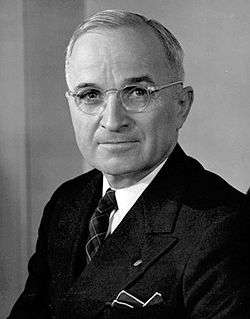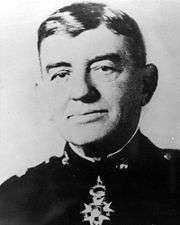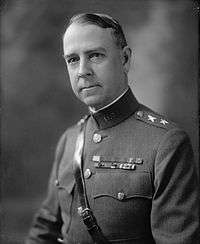Sons of Confederate Veterans
 Official logo | |
| Abbreviation | SCV |
|---|---|
| Predecessor | United Confederate Veterans |
| Established | July 1, 1896 |
| Type | Patriotic-Hereditary society |
| Legal status | State chartered corporation |
| Purpose | Historical, benevolent |
| Headquarters |
Elm Springs, 740 Mooresville Pike, Columbia, Tennessee |
Membership (2015) | 98,000 |
Official language | English |
Commander-in-Chief | Charles Kelly Barrow |
Lieutenant-Commander-in-Chief | Thomas Strain |
| General Executive Council | |
| Publication | Confederate Veteran |
| Website |
scv |
Formerly called | United Sons of Confederate Veterans |
The Sons of Confederate Veterans, Inc. is an association of male descendants of ex-Confederate soldiers and sailors, founded in Richmond, Virginia, on July 1, 1896.[1][2][3]
Purpose
The objects and purposes of the organization are "to encourage the preservation of history, perpetuate the hallowed memories of brave men, to assist in the observance of Memorial Day, to aid and support all members, widows and orphans, and to perpetuate the record of the services of every Southern soldier."[4]
Membership
All male descendants of those who served in the Confederate Armed Forces to the end of the war, who died in prison or while in actual service, who were killed in battle or who were honorably retired or discharged shall be eligible for membership. Membership can be obtained through either lineal or collateral family lines and kinship to a veteran must be documented genealogically. The minimum age for full membership is 12, but there is no minimum for Cadet membership.
History
On July 1, 1896, twenty-four delegates assembled in Richmond, Virginia for the purpose of forming a ″national organization, adopting a constitution similar in every respect to that governing the United Confederate Veterans, and permanently organized under the name United Sons of Confederate Veterans″ (USCV). The preamble to the USCV Constitution read in part: ″To encourage the preservation of history, perpetuate the hallowed memories of brave men, to assist in the observance of Memorial Day, and to perpetuate the record of the services of every Southern Soldier″. Its aims, objects, and purposes were ″not to create or foster, in any manner, any feeling against the North, but to hand down to posterity the story of the glory of the men who wore the gray″.[5]

In the 1990s, disagreements over the purpose of the organization emerged within the SCV. At issue was an alleged shift in the SCV's mission from "maintaining gravestones, erecting monuments and studying Civil War history" to more issue-centric concerns. The SCV's new concerns included "fight[ing] for the right to display Confederate symbols everywhere from schools to statehouses".[6] The more "activist" members of the SCV gained electoral support and were increasingly elected to its leadership positions. Members of the more traditionalist camp alleged that the League of the South had influenced their organization's new direction. One ally of the activist wing claimed that thousands of SCV members are also League of the South members. News reports state that the activists advocate "picketing, aggressive lobbying, issue campaigning and lawsuits" in favor of what they term "heritage defense" to prevent "heritage violations". The SCV defines those as "any attack upon our Confederate Heritage, or the flags, monuments, and symbols which represent it".[7]
In 2002, SCV dissidents formed a new organization, Save the Sons of Confederate Veterans (SSCV), composed of members and former members of SCV.[8] According to SSCV co-founder Walter Charles Hilderman, "about a hundred or so individuals and groups identified themselves on the SSCV Web site as supporting Save the SCV" not long after the group was founded, though the current membership numbers for the SSCV are not available.[9] Boyd Cathey reported in the Southern Mercury that most of the dissension had ended by 2003, and the majority of the members of the SCV agreed with the heritage preservation activities espoused by the new SCV leadership.[10] One of the main figures in that new SCV leadership, South Carolina politician and investment advisor Ron Wilson, served as Commander-in-Chief from 2002 to 2004. In 2012, he was sentenced to prison for running a Ponzi scheme as part of his investment business; ironically, among those he defrauded were members of the SCV.[11]
In early 2005, the SCV council sued to expel SCV Commander-in-Chief Dennis Sweeney from office. The court initially granted the council temporary control of the organization, but its final decision returned power to Sweeney. Thirteen of the 25 council members were expelled from the council shortly after Sweeney regained control. Nine of the council members expelled were former Commanders-in-Chief of the SCV, a status that heretofore had come with a life membership on the council.[12][13] In February, Cathey wrote in the Southern Mercury that most of the SCV's members had united against the "War on Southern Culture".[10] By the SCV's summer 2005 convention, activists firmly controlled the council. They severed much of the SCV's long-standing relationship with the more traditionalist Military Order of the Stars and Bars (MOSB). MOSB, founded in 1938, had been closely involved with the SCV, sharing its headquarters since 1992 and co-publishing Southern Mercury. The MOSB's Commander General, Daniel Jones, citing "the continuing political turmoil within the SCV", moved the MOSB out of the shared quarters, ended the joint magazine publishing enterprise, and separated the two organizations' finances. In 2006, for the first time, the two organizations held separate conventions.[14]
Controversies
In 2011, the Mississippi Division, SCV, launched a campaign to honor Confederate Lieutenant-General Nathan Bedford Forrest with a specialty license plate. The same year, the organization awarded Arizona Sheriff Joe Arpaio its "Law and Order" award.[15] In 2013, Texas denied a request for a Confederate Battle Flag specialty license plate, a decision later upheld in State court.[16] That state court decision was later overturned in Federal court, and the matter was ultimately heard by the U.S. Supreme Court in Walker v. Texas Division, Sons of Confederate Veterans, which held that Texas was allowed to deny the request for a specialty license plate featuring the group's logo.[17][18] In 2014, the State of Georgia approved a battle flag specialty license plate.[19]
Bonnie Blue Society

The Sons of Confederate Veterans also sponsors the Bonnie Blue Society for authors of southern literature dealing with the veterans of the Confederate States of America. Thus, the Bonnie Blue Society is a recognition and award for persons who have perpetuated the memory of the Confederate soldier or sailor in literary form. Accepted members of the Literary society have researched, written and published a book or article on the Confederacy for the general public. A copy of the book or article will be sent to the permanent collection of the Major General William David McCain Library at the general headquarters of the Sons of Confederate Veterans. The subject matter of the written items presented to the Bonnie Blue Society should be written according to the heritage goals of the Sons of Confederate Veterans by being neither anti-Confederate nor racist. The society uses a version of the Confederacy's Bonnie Blue Flag as their official membership insignia. This banner was an early, although unofficial, flag of the Confederate States, consisting of a single white star on a dark blue field.
Notable members
Notable members of the Sons of Confederate Veterans have included:
-

Bear Bryant,
Presidential Medal of Freedom recipient -
Clint Eastwood,
Four-time Academy Award winner
See also
- H. L. Hunley Award
- Jefferson Davis Presidential Library and Museum
- Military Order of the Stars and Bars
- Sons of Union Veterans
- United Daughters of the Confederacy
Notes
- ↑ USCV Constitution. Preamble.
- ↑ SCV, 1926, pp. 102–105.
- ↑ SCV Constitution. Art./Amend. III, Sec. 1–8.
- ↑ SCV, 1926, p. 104.
- ↑ SCV, 1926, pp. 102–105.
- ↑ Dan Gearino, "A Thin Gray Line", The News and Observer (Raleigh, NC), August 28, 2002; Tracy Rose, "The War Between the Sons: Members fight for control of Confederate group". Mountain Xpress (Asheville, NC), February 5, 2003, vol 9 iss 26; Jon Elliston, "Between heritage and hate: The Sons of Confederate Veterans' internal battle rages on". Mountain Xpress (Asheville, NC), August 18, 2004, vol 11 iss 3; "The battle over flag's meaning: Arguing over the Confederacy's essence", Daily Record/Sunday News, (York, PA) September 3, 2006.
- ↑ Reporting a Heritage Violation
- ↑ SSCV Introduction
- ↑ The Times and Democrat, interview of Walter Charles Hilderman, October 25, 2004
- 1 2 Cathey, Boyd D. (February 2005). "Principles and Priorities: The Sons of Confederate Veterans and the Battle for Southern Culture". Southern Mercury 3 (1): 30–1.
- ↑ http://www.independentmail.com/news/local-news/crime/ron-wilson-sentenced-nearly-20-years-federal-priso
- ↑ McWhirter, Cameron (October 2, 2005). "Gray vs. Gray: Factions in Sons of Confederate Veterans exchange salvos in latest Civil War battleground". Atlanta Journal-Constitution.
- ↑ Fitts, Deborah (June 2005). "SCV Supports Leaders And Ousts Dissidents". Civil War News.
- ↑ Jones letter, 22 May 2006
- ↑ http://www.cnn.com/2011/US/02/14/mississippi.kkk.controversy/[]
- ↑ http://www.dallasnews.com/news/state/headlines/20131106-appeals-court-to-hear-texas-dispute-over-confederate-flag-license-plate.ece[]
- ↑ http://www.usnews.com/news/articles/2015/03/23/coming-soon-swastikas-racial-slurs-on-license-plates?int=998208
- ↑ Liptak, Adam (June 18, 2015). "Supreme Court Says Texas Can Reject Confederate Flag License Plates". The New York Times.
- ↑ http://nation.time.com/2014/02/20/confederate-flag-georgia-license-plate/[]
References
- Sons of Confederate Veterans (1926). Hopkins, Walter Lee, ed. Year Book and Minutes of the Thirty-First Annual Convention of the Sons of Confederate Veterans in the City of Birmingham, Ala., May 18–21, 1926. Richmond, Va.: Dudley Printing Co., Inc. Retrieved March 23, 2015.
- Sons of Confederate Veterans (2013). Constitution of the Sons of Confederate Veterans (PDF). Columbia, Tenn.: Sons of Confederate Veterans, Inc. Retrieved March 23, 2015.
- United Sons of Confederate Veterans (1902). Constitution of the United Sons of Confederate Veterans. St. Louis: Wm. F. Rower & Co. (published April 30, 1902). Retrieved March 23, 2015.
Further reading
- United States. Cong. Senate (1918). Proceedings of the Twenty-seventh Annual Reunion of the United Confederate Veterans, the Eighteenth Annual Convention of the Confederated Southern Memorial Association, and the Twenty-second Annual Reunion of the Sons of Confederate Veterans. Washington: Government Printing Office. Retrieved April 27, 2014.





